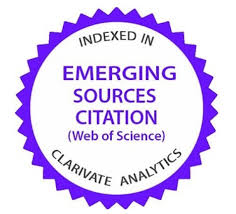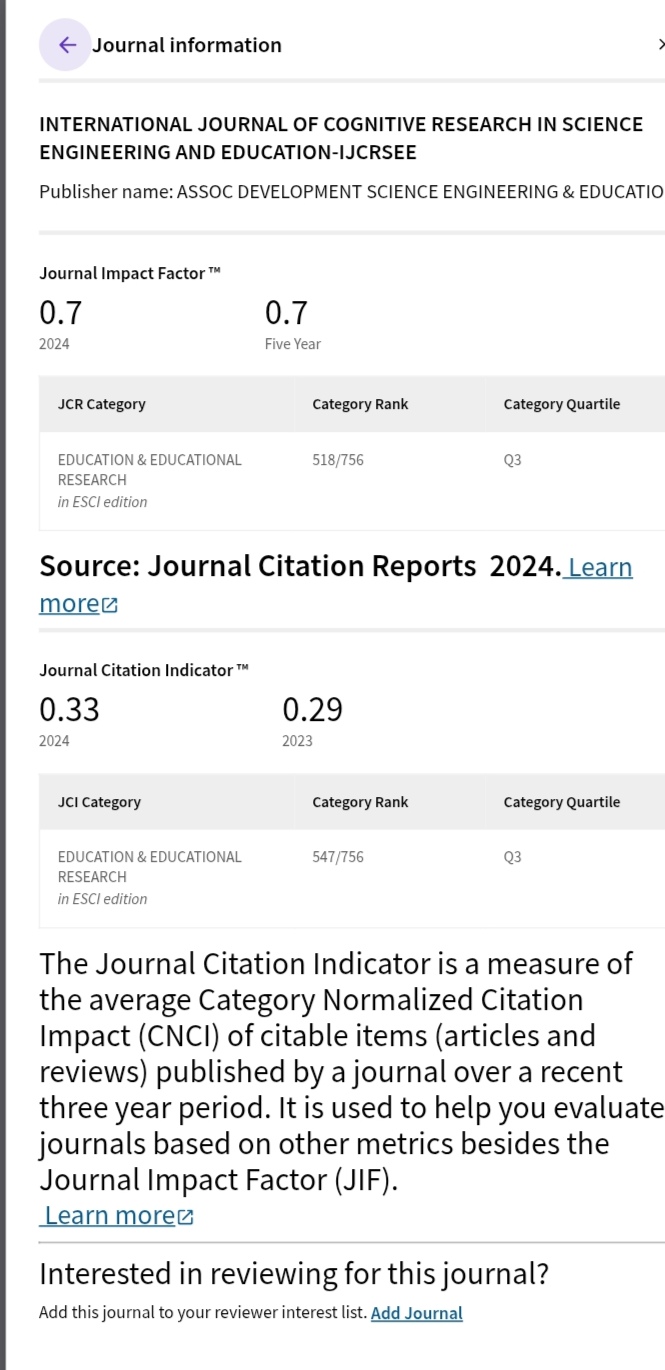Methodology of Comparative Research in Education: Role and Significance
DOI:
https://doi.org/10.23947/2334-8496-2020-8-3-155-162Keywords:
epistemology of comparative research, comparative pedagogy, quantitative methodological approach, qualitative methodological approach, education systemsAbstract
Research interest in the comparison of education systems emerged parallel with the study of social development and the general globalization of social resources. The contemporary context of research discourse puts researchers in a position of necessary collaboration and partnership, with a special emphasis on the comparative analysis of educational phenomena. The aim of this study is the analysis of the theoretical understandings of the role of comparative research in the cognition of pedagogical phenomena as well as the transformation of the comparative methodological apparatus in the contemporary context. The research tasks are aimed at analyzing the historical development of comparative research, epistemology, the function of comparative research in pedagogy, as well as its importance in pedagogy. The importance of developing pluralism in the methodological approach of comparative research is emphasized in order to strengthen research capacities for its future development in pedagogical sciences. The study relies on the historical method and the method of source content analysis.
Downloads
References
Alexander, R. (2009). Towards a comparative pedagogy. In R. Cowen, & A.M. Kazamias (Eds.), International handbook of comparative education (pp. 923-939). Dordrecht: Springer. http://dx.doi.org/10.1007%2F978-1-4020-6403-6_59
Bray, M. (2002). Comparative education in the era of globalisation: Evolution, missions and roles. Revista Española de Educación Comparada, 8, 115-135. Retrieved from https://bit.ly/2JwbQT7
Bray, M., Adamson, B., & Mason, M. (2007). Comparative education research: Approaches and methods. Comparative Education Research Centre. The University of Hong Kong. https://psycnet.apa.org/doi/10.1007/978-1-4020-6189-9
Chigisheva, O. (2015). Globalization and its influence on comparative education methodology. Bulgarian Comparative Education Society, 13(2), 131-137. Retrieved from https://files.eric.ed.gov/fulltext/ED568931.pdf
Crossley, M. (2000). Bridging Cultures and Traditions in the Reconceptualisation of Comparative and International Education. Comparative Education, 36(3), 319-332. https://doi.org/10.1080/713656615
Dyankova, G. (2018). Research of cognitive exchange specifics in teachers academic training. International Journal of Cognitive Research in Science, Engineering and Education (IJCRSEE), 6(3), 1-14. https://doi.org/10.5937/ijcrsee1803001D
Epstein, E.H. (1983). Currents left and right: ideology in comparative education. Comparative Education Review, 27(1), 3-29. Retrieved from https://bit.ly/3mkDDUZ
Epstein, E.H. (2008). Setting the normative boundaries: Crucial epistemological benchmarks in comparative education. Comparative Education 44(4), 373-386. https://doi.org/10.1080/03050060802481405
Epstein, E.H. (2017). Is Marc-Antoine Jullien de Paris the “father” of comparative education? Compare, 47(3), 317-331. https://doi.org/10.1080/03057925.2016.1254542
Green, A. (2003). Education, globalisation and the role of comparative research. London Review of Education, 1(2), 83-97. https://doi.org/10.1080/1474846032000098464
Halls, W.D. (1990). Comparative education: contemporary issues and trends. London: J. Kingsley Publishers.
Holmes, B. (1984). Paradigm shifts in comparative education. Comparative Education Review, 28(4), 584-604. https://doi.org/10.1086/446469
Kaloyannaki, P., & Kazamias, A. M. (2009). The modernist beginnings of comparative education. The proto-scientific and the reformist-meliorist administrative motif. In R. Cowen, & A.M. Kazamias (Eds.), International Handbook of Comparative Education (pp. 11-30). Dordrecht: Springer.
Kazamias, A.M. (1961). Some old and new approaches to methodology in education. Comparative Education Review, 5, 90-96. https://doi.org/10.1086/444876
Kazamias, A.M. (2001). Re-Inventing the historical in comparative education: Reflections on a protean episteme by a contemporary player. Comparative Education, 37(4), 439-449. https://doi.org/10.1080/03050060120091247
Manzon, M. (2018). Origins and traditions in comparative education: Challenging some assumptions. Comparative education, 54(1), 1-9. https://doi.org/10.1080/03050068.2017.1416820
Marginson, S., & Mollis, M. (2001). The door opens and the tiger leaps: Theories and reflexivities of comparative education for a global millennium. Comparative Education Review, 45(4), 581-615. https://doi.org/10.1086/447693
Mattheou, D. (2009). The scientific paradigm in comparative education. In R. Cowen, & A.M. Kazamias (Eds.), International Handbook of Comparative Education (pp. 11-30). Dordrecht: Springer.
Noah, H. J., & Eckstein, M. A. (1969). Toward a Science of Comparative Education. London: Macmillan. https://doi.org/10.1080/00131727009340421
Noah, H.J (1984). The use and abuse of comparative education. Comparative Education Review, 28(4), 550-562. https://doi.org/10.1086/446467
Otsuka, Y. (2009). The challenges of fieldwork in comparative education studies in Japan: A methodological consideration. Educational Studies in Japan: International Yearbook, 4, 37-51. Retrieved from https://files.eric.ed.gov/fulltext/EJ912718.pdf
Phillips, D. (1999). On comparing. In R. Alexander, P. Broadfoot & D. Phillips (Eds.), Learning from comparing: New directions in comparative educational research, context, classrooms and outcomes (pp. 15-20). Oxford: Symposium books.
Phillips, D. (2006). Comparative education: Method. Research in Comparative and International Education, 1(4), 304-319. https://doi.org/10.2304%2Frcie.2006.1.4.304
Ruscoe, G. C., & Nelson, T.W. (1964). Prolegomena to a definition of comparative education. International Review of Education, 10(4), 385-392. https://doi.org/10.1007/BF01416166
Rust, V.D., Soumaré, A., Pescador, O., & Shibuya, M. (1999). Research strategies in comparative education. Comparative Education Review, 43(1), 86-109. Retrieved from https://bit.ly/2KUMTBr
Schneider, F., Kirkpatrick, U., Fellner, L., & Bereday, G. (1961). The immanent evolution of education: a neglected aspect of comparative education. Comparative Education Review, 4(3), 136-139. https://doi.org/10.1086/444845
Silova, I., & Brehm, W.C. (2010). For the love of knowledge: William W. Brickman and his comparative education. European Education, 42(2), 17-36. https://doi.org/10.2753/EUE1056-4934420202
Spasenović, V. (2013). Školski sistemi iz komparativne perspektive [School systems from a comparative perspective]. Belgrade: Institute of Pedagogy and Andragogy, Faculty of Philosophy.
Stanković, Z., Maksimović, J., & Osmanović, J. (2018). Cognitive theories and paradigmatic research posts in the function of multimedia teaching and learning. International Journal of Cognitive Research in Science, Engineering and Education (IJCRSEE), 6(2), 107–114. https://doi.org/10.5937/ijcrsee1802107S
Tamtik, M. (2014). Book review. Canadian and International Education, 43(2), 1-6. Retrieved from https://bit.ly/3muEna8
Vulliamy, G. (2004). The impact of globalization on qualitative research in comparative and international education. Compare, 34(3), 261-283. https://doi.org/10.1080/0305792042000257112
Wilson, D. (2003). The future of comparative and international education in a globalised world. International Review of Education, 49(1-2), 15-33. Retrieved from https://bit.ly/2JdIwRB
Zha, Q., & Tu, D. (2016). Doing mixed methods research in comparative education: Some reflections on the fit and a survey of the literature. In A. W. Wiseman & E. Anderson (Eds.), Annual Review of Comparative and International Education 2015 (pp. 165-191). Emerald Group Publishing Limited. https://doi.org/10.1108/S1479-367920150000028014
Published
How to Cite
Issue
Section
Categories
License
Copyright (c) 2020 Jelena Maksimović

This work is licensed under a Creative Commons Attribution 4.0 International License.
Plaudit
Accepted 2020-12-10
Published 2020-12-20












